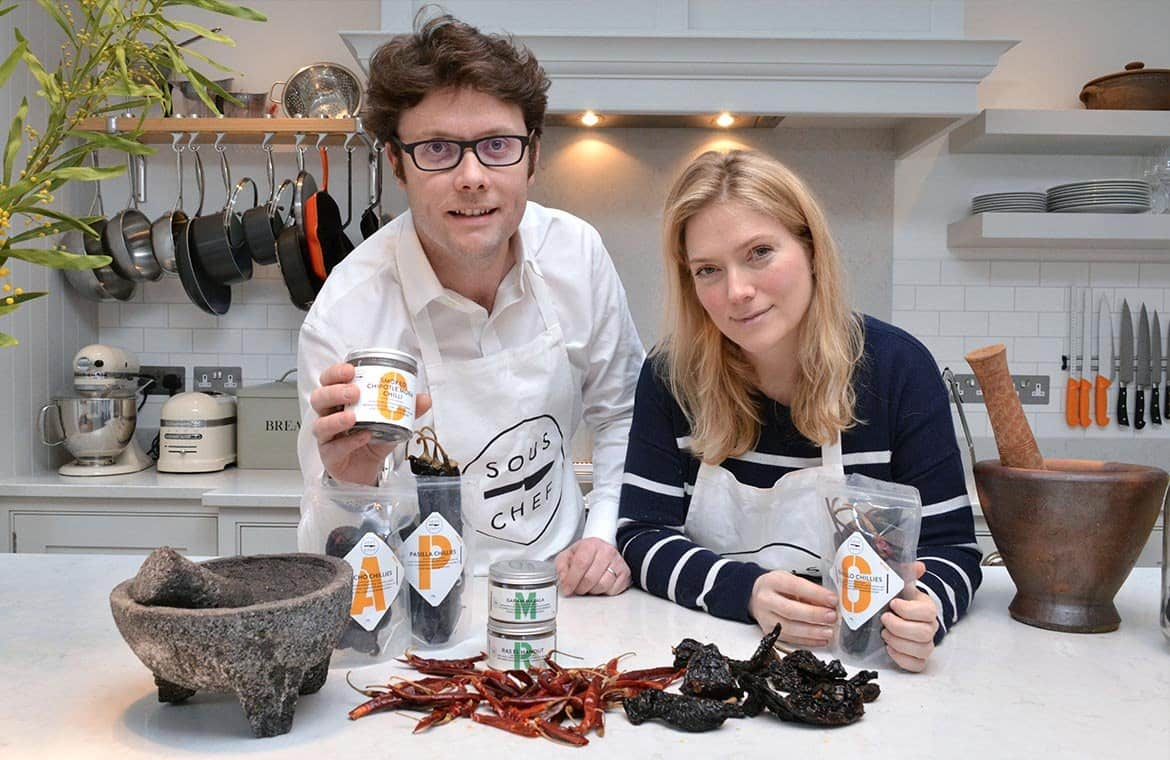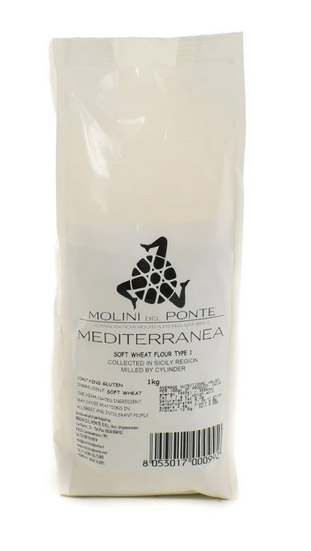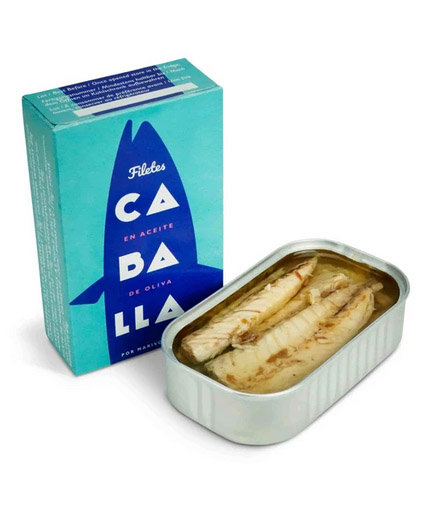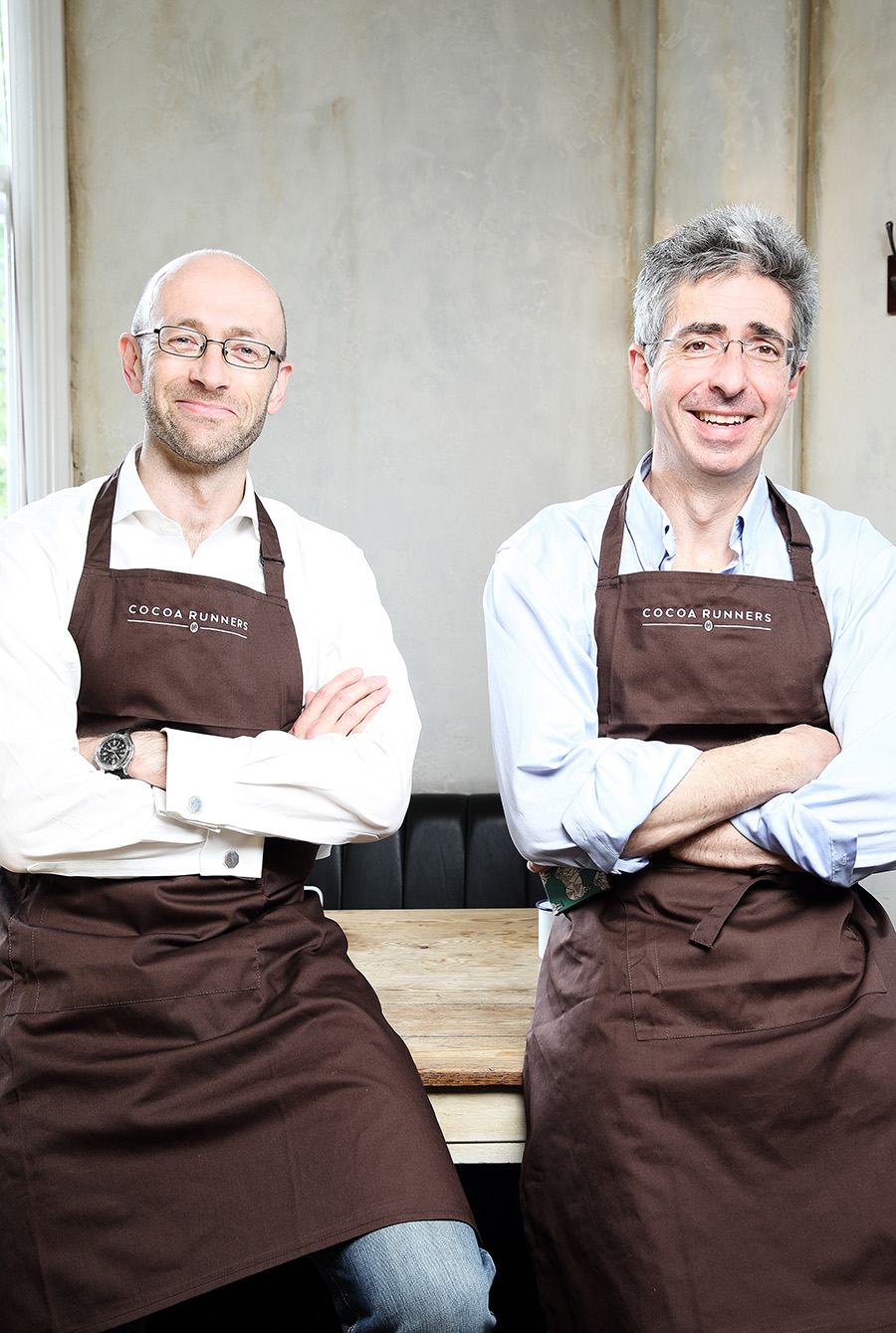During the first lockdown I, like many others, was very grateful to be able to buy food online without needing to leave home. I bought excellent British cheese from Neal’s Yard Dairy and The Courtyard Dairy, bread and delicious pastries from a local bakery, fish from Cornwall, fruit and vegetables from a local market trader… Food delivery dates were noted in my diary as the main event of the day. I remember how excited – and grateful – I was when they arrived.
While many businesses from cheesemakers to restaurants pivoted to hastily set up or expand online shops and mail-order facilities, I wondered what this year had been like for food companies who already occupied the online marketplace.

Sous Chef – with its tempting, cosmopolitan range of ingredients and efficient service – has a loyal following among food lovers. As Nicola Lando, who co-founded Sous Chef with her husband Nick, explains March saw Sous Chef become very busy indeed. “People were talking of food shortages and supermarkets were running out of basics like pasta, eggs and tinned tomatoes. The volume of people wanting to shop online was suddenly very high, not just because supermarkets were rationing, but also because people didn’t want to go to them. We rank very highly in Google Search when you look for ‘flour’.” They moved fast to scale up. “We’re used to scaling up quite dramatically at Christmas – we have a lot of gifting from our website. Normally, we have a lot more notice, this time we had around a week’s notice, but we knew what the business had to look like and how it would work which was very helpful.”

The sudden high demand for certain products they didn’t normally sell in large quantities presented logistical challenges. People were buying “flour, flour, flour.” The fact that Sous Chef works with suppliers in mainland Europe was an advantage, as, unlike Britain, there wasn’t the same level of stocking up by customers taking place. “Having built up a European supply base, we were able to bring in more goods when Britain had run out. Our buyer was busy ringing all our different suppliers to get hold of flour.” Because of milling times and the volume of demand, flour orders had to be placed weeks ahead. Predicting demand that far ahead was tricky and stressful. “We’ve never bought flour on that scale before and its shelf-life isn’t huge. Sardines much more comfortable to buy in because they have 2-3 years shelf life while flour is just 6-9 months and you wouldn’t want to be selling it with just one or two months shelf life left.”
Products that normally moved slowly were suddenly in high demand – with both their more basic pasta and their very premium pasta selling out. “Because there was no pasta in supermarkets, people were clearing us out at both ends of the spectrum. We had tinned fish arriving and arriving and arriving – couldn’t fill up the shelves fast enough. We ran out of yeast and got some produced in France for us, but the lead time was seven weeks by which point yeast demand had gone!” Coronavirus restrictions in Europe impacted on supply. “Our Italian suppliers had loads of dried beans, but their label supplier printer was deemed a non-essential business and had to close and so they could only supply us a limited amount.”


It wasn’t just the store-cupboard staples that went well, treats, too, were popular. “I guess truffle crisps cheered people up! They were one of our biggest sellers, the same with olives.” The increased interest in home cooking was reflected in sustained sales across Sous Chef’s World Food categories. “People were taking time to cook at home and sourcing ingredients. There was sense that cooking from scratch was a way of countering the bleak times, a kind of nesting.”
Fulfilling orders in a time of Coronavirus also required practical steps for the safety of staff to be taken quickly. “We did an enormous warehouse re-organisation, which was a big thing as we’d had the same layout for six years. Moved all the racking, all the stock during one of the busiest trading times when people weren’t allowed to get near each other to create an S shape, up-and-down, one-way system to ensure people couldn’t bump into each other.
One positive impact of the crisis for a food delivery service was that with people working from home rather than offices (where they are not allowed to receive deliveries) deliveries worked well. Looking back at this year, Nicola feels the pandemic has accelerated some of the trends in online shopping. “Our sales are still higher than they would have been without the pandemic. I think more people will carry on shopping online. There’s a greater range of foods available and a level of comfort and trust in the idea of shopping for groceries online.”

For craft chocolate specialists Cocoa Runners, the immediate impact of the first lockdown and the closure of hospitality was losing “a lot of wholesale business overnight,” explains co-founder Spencer Hyman. “There was just enormous sadness for all the makers, especially those who’d built up solid businesses supplying couverture to high-end restaurants or bakers. The Americans were particularly badly hit because they’d all gone down that route.”
One of Cocoa Runners’ marketing tools before the pandemic had been a popular series of talks and chocolate tastings, with Spencer making an eloquent, articulate case for the merits – environmental and social as well as gustatory – of craft chocolate. He promptly moved to set up virtual tastings online, a move which has been a “saving grace” for the company as they have proved popular both with individuals and companies. Interestingly, Spencer now thinks that “it’s better to attend a virtual tasting than a physical one.” Sitting at home allows people to engage more with the chocolates they are tasting and concentrate on the experience. “The strange thing about tasting is that most of us aren’t very practised at it,” he explains. “I think it’s hard to find a vocabulary and that can be intimidating. If you can share your thoughts with other people anonymously online it’s easier to join in. We encourage people to use the chat button, ask questions to engage with them.”


Cocoa Runners – virtual tasting
The virtual tastings are proving hugely popular with companies, which with staff working from home want events to entertain and bring them together. “We do them every week for several large companies. People join in around the world – we just need enough time to send out the chocolate to them. The feedback is great – people say they’re such fun and also a nice teambuilding exercise.”
Spencer has many concerns for the producers, especially the medium and large ones who did a lot of wholesale. The closure of coffee shops – which are an important retail outlet for craft chocolate – has also had a dire impact. “it’s been very, very bad for a lot of our suppliers. The silver lining is that through our virtual tastings we’re educating people about chocolate and long term that will be hugely beneficial. The problem with chocolate is that it’s a commodity. It’s used as a vector for flavour. When Terry’s sell their chocolate orange, they don’t tell you about the chocolate, they tell you it’s flavoured with real orange. We want to get people to think about the flavours that good chocolate has in its own right, to savour it, pay a little bit more for it so the cocoa farmers can afford to send their kids to school.”
I’ve been buying meat regularly from Pipers Farm in Devon for the last few years now, appreciating both the responsible way its produced and its quality. Peter and Henri Greig founded Pipers Farm over 30 years ago to offer and promote free-range meat produced on small, family farms, working in partnership now with around 30 likeminded farms. “Henri and I have spent over 30 years building these jigsaw pieces of our supply pipeline – it’s relatively resilient and robust, but has taken a long time building,” explains Peter. “It’s about relationships, building trust with farmers.” For many years Pipers supplied their meat wholesale to restaurants and sold it through a butcher’s shop in Exeter. Four years ago they moved their retail business entirely online, closing the shop when they discovered customers on the same road were ordering from the website! In doing so they have found a new, receptive audience for their meat which is growing year on year. While Peter and Henri look after the farming side of the business, their son Will Greig and his girlfriend Abby Allen look after the digital and marketing sides. Just like butcher’s shops on high streets, during the first lockdown in March Pipers Farm saw a massive surge in demand during lockdown. “Suddenly the website was in meltdown. There was panic buying, people were buying ridiculous quantities of product. Will and Abby needed to get back control of the situation, so they shut down to new customers and pushed out delivery dates. Normally people can expect to get a delivery any day they want, including the next day, but the dates were pushed out on average to about three weeks. Initially, there was consternation and people who weren’t able to order felt aggrieved.” Explaining and communicating clearly was important. “Our messaging was that people definitely didn’t need to panic buy. Our customer base think long and hard about their shopping choices, so you can have a rational exchange of information. We also prioritised looking after people shielding or caring for someone vulnerable. One of the exciting things about a digitised Pipers Farm is this ability to be flexible, dynamic and particular.”
There were supply pressures. The sudden, high demand for chicken together with the fact that Piper’s Farm grow their chickens for 12-13 weeks, a process which simply couldn’t be rushed, saw some items simply not often available online. With a waiting list of 3000 customers, there might have been a temptation to buy meat in. “We could have made a lot of money, “but no way,” says Peter firmly. “Every single mouthful we sell has got to be a Pipers Farm product – that is it.” Their vision he explains is long-term, not short-term profit.
The Pipers Farm business is growing and recently took on a new unit in Cullompton to fulfil orders. “It’s been a really exciting year of growth.” The model of working with other farmers to produce high-welfare, free-range meat is one that he feels can be scaled up successfully. Peter is genuinely and profoundly excited by the opportunities online retail offers to rural food producers. “We want to see the average age of farmers drop from 60 years to 30 years. There are families who’ve been rearing Red Ruby cattle for us up on the top of Exmoor for 30 years. We say to the younger generation, look, think about coming home because with a phone in your hands with 4G anywhere on your farm is as well-located as Hyde Park Corner.”

